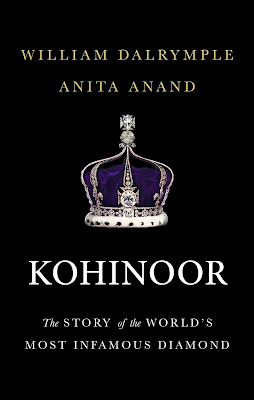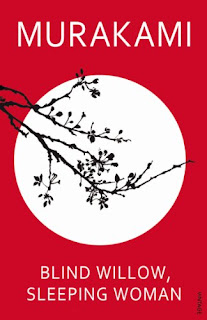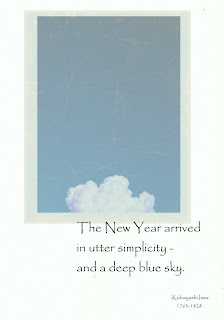A few months ago, when a famous Indian industrialist – famous more for his debauched lifestyle than for any worthwhile achievements – took asylum in Britain, absconding after his financial crimes were brought to light, a friend of mine made a sarcastic tweet. Paraphrased, it went like ‘Even Mr. ______ seems to know that Britain is the best place to take refuge after looting India.’ For all the hilarity of that tweet, it conceals a sense of bitterness that many generations of Indians feel against the so-called global ‘super power’ that plundered and looted their motherland for almost two centuries in a clinical manner. Sowing dissensions where there were none, widening the chasms where there were only cracks, looting the natural resources, causing one of the worst man-made famines in the history, the so-called Raj did all that and more to loot her colonies, prime among them India. In a cruel twist of irony, one of the most noteworthy items plundered thus now crowns the royalty of England – the Koh-i-Noor!
Almost all of us Indians would have heard of the Koh-i-Noor, along with the Peacock throne, as one of the most precious things robbed from us. If you ever became keen on knowing about the entire story, then I would recommend this book. Such a breathtaking chronicle this turned out to be.
This book is divided into two parts. The first part, deals with the hazy origins of the Kohinoor, its comparison/identification with the mythical Syamantaka gem – associated with Lord Krishna, the arrival of Babar and the transfer of ownership of the stone. Leading us through the Mughal lineage, the history then takes a bloody turn at the hands of the marauding Nader Shah, the Persian who soaked Delhi’s streets in blood. The stone then continues its journey from Persia to Afghanistan, arriving with Ahmad Khan Abdali, the once loyal servant of the now assassinated Nader Shah. Fortunes rise for Ahmad Shah only to fall soon for his descendants. When one of the famed Indian royals – Raja Ranjit Singh – attains the diamond from Shah Shuja under disreputable methods, the Kohinoor comes a full circle in its journey – from India to Persia to Afghanistan to India. Dalrymple ends his portion with the death of the Lion of Punjab.
Picking from where he left, Anita Anand continues in a style that is in no way secondary. Recalling the gore history of Punjab after Ranjit Singh, Anita Anand goes on to recount the regicides, blood feuds and eventual decline of the once-mighty empire into a rudderless ship to be swayed by the wily hands of the East India Company honchos. Prince Duleep Singh, left orphaned, much like his motherland, is whisked away and then removed permanently from his homeland. His uninformed acquiescence with the British, eventual decline and pitiable death form the final few chapters. The passage of the ‘Mountain of Light’ (Koh-i-Noor) through the many hands during this phase and its final arrival in Britain as a ‘gift’ to the Queen Victoria, are all given in such vivid details that you will feel a medley of emotions surging through your mind. The spineless efforts of the Indian government to reclaim the symbol of what was once a glorious ‘Hindustan’ is told in the fading pages.
The pursuit of wealth has almost always blinded humans, making beasts out of even the best among them. Add to it the mystery and aura surrounding something like the Koh-i-Noor, and you have all the ingredients of a disastrous tale in your hands. Disaster the Koh-i-Noor has very well proved to be. Not in the superstitious sense though. The greed and cruelty inherent in each and every human being has time and again found unbridled expression in people occupying the thrones. Things like the Koh-i-Noor have merely thrown light at such blatant behaviours and bloody results. Sadly, this ‘Mountain of Light’ has only managed to leave behind a trail of darkness and tragedy.
Shashi Tharoor isn’t someone that I thought that I would ever agree with. But when he appreciated this book saying that ‘there is nothing more you need to know about the Kohinoor’, I couldn’t agree more!
A masterpiece indeed!
Almost all of us Indians would have heard of the Koh-i-Noor, along with the Peacock throne, as one of the most precious things robbed from us. If you ever became keen on knowing about the entire story, then I would recommend this book. Such a breathtaking chronicle this turned out to be.
This book is divided into two parts. The first part, deals with the hazy origins of the Kohinoor, its comparison/identification with the mythical Syamantaka gem – associated with Lord Krishna, the arrival of Babar and the transfer of ownership of the stone. Leading us through the Mughal lineage, the history then takes a bloody turn at the hands of the marauding Nader Shah, the Persian who soaked Delhi’s streets in blood. The stone then continues its journey from Persia to Afghanistan, arriving with Ahmad Khan Abdali, the once loyal servant of the now assassinated Nader Shah. Fortunes rise for Ahmad Shah only to fall soon for his descendants. When one of the famed Indian royals – Raja Ranjit Singh – attains the diamond from Shah Shuja under disreputable methods, the Kohinoor comes a full circle in its journey – from India to Persia to Afghanistan to India. Dalrymple ends his portion with the death of the Lion of Punjab.
Picking from where he left, Anita Anand continues in a style that is in no way secondary. Recalling the gore history of Punjab after Ranjit Singh, Anita Anand goes on to recount the regicides, blood feuds and eventual decline of the once-mighty empire into a rudderless ship to be swayed by the wily hands of the East India Company honchos. Prince Duleep Singh, left orphaned, much like his motherland, is whisked away and then removed permanently from his homeland. His uninformed acquiescence with the British, eventual decline and pitiable death form the final few chapters. The passage of the ‘Mountain of Light’ (Koh-i-Noor) through the many hands during this phase and its final arrival in Britain as a ‘gift’ to the Queen Victoria, are all given in such vivid details that you will feel a medley of emotions surging through your mind. The spineless efforts of the Indian government to reclaim the symbol of what was once a glorious ‘Hindustan’ is told in the fading pages.
The pursuit of wealth has almost always blinded humans, making beasts out of even the best among them. Add to it the mystery and aura surrounding something like the Koh-i-Noor, and you have all the ingredients of a disastrous tale in your hands. Disaster the Koh-i-Noor has very well proved to be. Not in the superstitious sense though. The greed and cruelty inherent in each and every human being has time and again found unbridled expression in people occupying the thrones. Things like the Koh-i-Noor have merely thrown light at such blatant behaviours and bloody results. Sadly, this ‘Mountain of Light’ has only managed to leave behind a trail of darkness and tragedy.
Shashi Tharoor isn’t someone that I thought that I would ever agree with. But when he appreciated this book saying that ‘there is nothing more you need to know about the Kohinoor’, I couldn’t agree more!
A masterpiece indeed!








